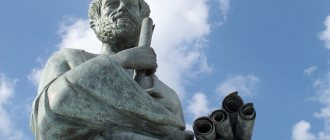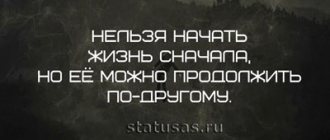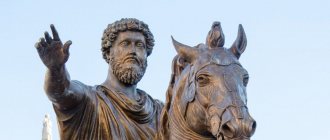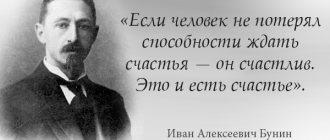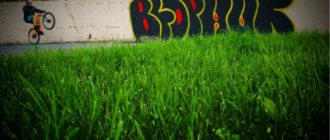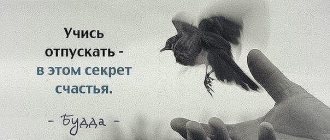Krylov Ivan Andreevich is a famous Russian fabulist and journalist. Krylov was also a famous publicist and had great talent in poetry. His creative legacy consists of more than 200 fables, as well as comedies and tragedies.
Ivan Krylov was born in Moscow on February 13, 1769. His father was a military man who served in the government chamber. Ivan was engaged in self-education, since his family did not have funds for vocational education for his son. The famous fabulist independently studied several languages, literature and even mathematics.
The writer was very close to the common people. Participated in holidays and folk festivities. It was from a simple Russian person that he gained his experience, which was later reflected in his works.
In the early 80s, the family moved to St. Petersburg, hoping for a good life. There Krylov entered the government service, in which he later became disillusioned. He was drawn to literature, to the embodiment of his ideas and ambitions. He begins to write dramatic works, but realizes that this is also not his calling.
In 1789, Ivan Andreevich published his first magazine, “Mail of Spirits,” which reflected the entire satirical orientation of Krylov. But without even existing for 1 year, the publishing house was closed. Krylov decides to resign and completely delve into his creativity. He acquired a printing house and began publishing a new magazine called The Spectator. Over time, the publication gained considerable fame. In 1792, the fabulist published the story “Kaib”. But despite his successes, not everyone was satisfied with the writer’s work. Catherine II spoke extremely negatively about Ivan Andreevich, which is why the satirist had to leave St. Petersburg.
In the late 90s of the 18th century, Krylov served with the prince as a teacher and secretary at home. He is increasingly revealing his creativity and giving the world many works.
In 1805, Ivan Andreevich translated two fables by La Fontaine. At the same time, the writer sent a collection of fables to critic I.I. Dmitriev to get his opinion. It was at this moment that Krylov devoted his remaining life to writing fables. He finally found his calling and published works of this genre until his last days.
You may also be interested: Octavian Augustus - quotes and aphorisms about war, power, people, marriage, haste
The famous writer died on November 21, 1844 from bilateral pneumonia.
Nowadays, the works of Ivan Andreevich are the national treasure of our country. A large number of his fables are known to every Russian child. His satirical translated works still never cease to delight adults. His sayings still find their place in our culture and life. We invite you to familiarize yourself with some of them.
Aphorisms about human vices
- A great man is only loud in his deeds, and he thinks his strong thoughts.
- If the head is empty, then the head of the mind will not be given space.
- Anyone who shouts to everyone about their affairs incessantly is probably of little use.
- The powerful always have the powerless to blame.
- The miser loses everything by wanting to get everything.
- No one likes to recognize themselves in satire.
- And a flatterer will always find a corner in the heart.
- But to the stupid are wise words to the deaf.
- Although the eye can see, the tooth is numb.
- The titmouse brought glory, but did not set the sea on fire.
- What thieves get away with, they beat the thieves for.
Moral of the fable "The Crow and the Fox"
No one can deny the fact that almost every person wants and loves to hear only good and pleasant things about themselves.
What would seem reprehensible here when a person admires someone or speaks enthusiastically, extolling their virtues?
The moral of the fable is this: about the danger and harm of flattering words.
The prudent author of the fable, using the example of the Fox and the Crow, teaches to be wary of people who are too kind and say a lot of compliments when communicating. Perhaps they are pursuing their own selfish goals, thereby diverting your attention.
Statements about power
- I even saw it yesterday: Everyone knows that Klimych is dishonest; They read about bribes to Klimych, and he furtively nods at Peter.
- And where the shepherd is a fool, the dogs are fools.
- Highness is good in breed and rank, but what profit does it gain when the soul is low?
- The most important science for kings: to know the properties of their people and the benefits of their land.
- He who has a conscience and a law will not steal or deceive, no matter what need he may be in, but give a thief even a million - he will not stop stealing.
- No matter how fancy the order is, if it is in the hands of unscrupulous people, they will always find a trick to make it where they want, skill.
- I heard - is it true? - as if in olden days we saw such judges who were very smart as long as they had a smart secretary.
- And people in ranks have the same problem with rogues: while the rank is small and poor, the rogue is not so noticeable; but an important rank on a rogue is like a bell: the sound from it is both loud and distant.
- And I would order another cook to hang it on the wall: so that speeches would not be wasted there, where power needs to be used.
You may also be interested: Arthur Schopenhauer - quotes and aphorisms about love, happiness, life
Characteristic features of the fable “The Crow and the Fox”
The fable written by Krylov is quite artistic in its form. Krylov’s characters in the fable are described vividly and realistically, each of them has their own character. The fox is portrayed as a flatterer who, when he wants to achieve something, uses his eloquence and simply goes out of his way to praise the one from whom he hopes to get something. A crow denotes a stupid person who is susceptible to persuasion, and through this often falls into deception. People who are short-sighted, stupid, as well as fame-loving and braggarts always succumb to flattery.
In the fable “The Crow and the Fox,” Krylov criticizes people’s ability to succumb to flattery, thanks to which only flatterers win. Crow succumbed to flattery and “The cheese fell out, he was such a cheat!”
Aphorisms about life
- As sometimes it is sickening to live, it is even more sickening to die.
- It is better to hold on to the faithful than to chase a deceptive hope.
- Jokes about death from afar as boldly as you like: but death up close is a completely different matter.
- The weather becomes rainier in autumn, and people become chattier in old age.
- Where it is impossible to take by force, a grip is needed.
- Eagles have to go lower than chickens, but chickens can never reach the clouds.
- The language is light and affectionate and service; but in need you can only find out a direct friend.
- Whoever is needed, we know his name.
- There is no need to boast about a matter that has not been completed.
- It’s a disaster when a shoemaker starts baking pies, and a pie-maker starts making boots.
- Do not despise anyone’s advice, but consider it first.
- Being strong is good, being smart is twice as good.
- We willingly give what we don’t need ourselves.
- Although I bend, I don’t break.
- When you adopt it wisely, then it’s not a miracle and you won’t find any benefit from it.
Analysis of the fable “The Crow and the Fox”
The character of the main characters is obvious.
The fox is a beauty: cunning, smart and deceitful, willing to flattery. She is also very smart and resourceful.
The crow, on the contrary, is stupid, gullible, and short-sighted. She believed the fox’s flattering words and croaked, but she didn’t even know how to sing. And I couldn’t boast of having an angelic voice either. However, how much she liked the fox’s praise that her head turned and the crow couldn’t resist trying to sing...
The cheese fell out - the fox got a tasty morsel and was gone.
The contradiction between the moral and the text is the main contradiction of this fable.
Morality states that flattery is not good, but the fox becomes the winner thanks to his playfulness and wit. And the fooled, stupid crow was left with nothing.
Statements about human stupidity
- Rather than consider the gossips to work, isn’t it better to turn to yourself, godfather!
- The cuckoo praises the rooster because he praises the cuckoo.
- How many times have they told the world that flattery is vile and harmful; but everything is not for the future.
- The ignorant also, in blindness, scolds science and learning, and all scientific works, not feeling that he tastes their fruits.
- The ignorant judge exactly this way: if they don’t understand the point, it’s all a trifle.
- So often a person is blind and stupid in his calculations. It seems that you are rushing on the heels of happiness: but when you actually deal with it, you are caught like a crow in soup.
- When a coward is afraid of someone, he thinks that the whole world is looking at him through his eyes.
- The worse someone’s character, the more he shouts and grumbles at people: he doesn’t see the good ones, no matter where he turns, and the first one himself won’t get along with anyone.
- Who will be right in the world if he listens to slander?
- He who is overwhelmed by pride beyond measure is sweet to himself and in what makes him funny to others; And often he happens to boast about things that he should be ashamed of.
- Often, although we don’t notice it, we willingly glorify ourselves in others.
- No matter how tempting freedom is, it is no less disastrous for the people when a reasonable measure is not given to it.
- Partially distinguishing between different minds, we often consider those who are not rich in dress or magnificent in hair to be fools; who is not surrounded by rings and watches and whose chests are not full of gold.
- No, gossip; and I often saw that your stigma was covered in fluff.
- And the casket simply opened.
- While tearing apart a pile of manure, the rooster found a grain of pearl.
- For me, it’s better to drink, but understand the matter.
- And you, friends, no matter how you sit down, you are still not fit to be musicians.
- Envious people, no matter what they look at, will bark forever; and you go your own way: they will bark and leave you alone.
- When there is no agreement among the comrades, their business will not go well, and what will come out of it is nothing but torment.
- The donkey had the most honest rules: he was unfamiliar with neither rapacity nor theft, he did not profit from the owner’s leaves or birds, it would be a shame to give a treat..
- And you’re right – blame yourself: reap what you sow.
- That wolves are greedy, everyone knows: a wolf, having eaten, never takes apart the bones.
- What kind of protection did you promise yourself here? No, our peasants are not so much of little use that, to their own misfortune, they save you.
Winged expressions from Krylov's fables
Throughout his life, a person sooner or later turns to the instructive works of Ivan Andreevich Krylov. With the help of fascinating plots of Krylov's fables with the participation of animals, the writer reveals the true traits of people or society as a whole, pointing out advantages and ridiculing shortcomings.
His assistants are phrases that, having read or heard at least once, cannot be forgotten.
Quotes from Krylov from the fables of the great writer:
And Vaska listens and eats. (Cat and cook)
Goodbye master pots! (Wagon train)
And the arcs bend with patience and not suddenly. (Industrious Bear)
If they throw me out the window, I’m drawn to another. (Fly and Bee)
It’s a pity that you are unfamiliar with our rooster. (Donkey and Nightingale)
And the casket simply opened. (Larchik)
Don't laugh at someone else's misfortune, Dove! (Siskin and Dove)
And he only marvels at his anthill. (Ant)
And he furtively nods at Peter. (Mirror and Monkey)
It’s a disaster when a shoemaker starts baking pies, and a cake maker starts making boots. (Pike and Cat)
Take on what you are passionate about, if you want your business to have a successful end. (Starling)
After all, I am not from this parish. (Parishioner)
A great beast for small things. (Raising Leo)
Yes, but things are still there. (Swan, Pike and Cancer)
One of the stable combinations that is found in the fable “Swan, Crayfish and Pike” is “Yes, but the cart is still there.” This sentence sums up the relationship of the three heroes, who pulled the cart in different directions at will.
Using the example of such an episode, the author points out the most important negative quality - lack of mutual understanding. Therefore, what could have been a winning case turned out to be a losing one. Their disunity did not lead to any result.
The crow croaked at the top of its lungs. (A Crow and a fox)
If the head is empty, then the head of the mind will not be given space. (Parnassus)
The young people began to sing: some went to the forest, some for firewood. (Musicians)
Why, without fear of sin, does the Cuckoo praise the Rooster? Because he praises the Cuckoo. (Cuckoo and Rooster)
God save us from these judges! (Donkey and Nightingale)
They bark and leave. (Pedestrians and dogs)
And from among the guests a pig came home - a pig. (Pig)
The tit brought glory, but did not set the sea on fire. (Tit)
And they threw Pike into the river! (Pike)
Like a squirrel in a wheel. (Squirrel)
How many people find happiness only by walking well on their hind legs. (Two dogs)
When there is no agreement among the comrades, things will not go well for them. (Swan, Pike and Cancer)
Whoever the enemy praises us is probably of no use. (Lion and Leopard)
Caught like a crow in soup! (Crow and Chicken)
How under each leaf both the table and the house were ready. (Dragonfly and ant)
The red summer sang. (Dragonfly and ant)
The fable “The Dragonfly and the Ant” contains the phrase “How under every leaf there was a table and a house ready,” which characterizes the people to whom the author alludes as striving for easy money. They are characterized by a lifestyle in which they do not make any effort to create comfort, earn money, etc.
However, inaction awaits the best. Such an expectation leads to ruin or lack of fulfillment of desires. The phrase “The red summer sang” is also found here, which emphasizes the lost time when it was possible to create all the conditions for future life, but this was not done.
They fight a little: But they don’t put drunken things in their mouths. (Musicians)
And where the shepherd is a fool, the dogs are fools. (Wolf and Wolf Cub)
Your stigma is covered in fluff. (Fox and Marmot)
It's your fault that I want to eat. (Wolf and Lamb)
There is no stronger beast than a cat! (Mouse and Rat)
I didn’t even notice the elephant. (Curious)
The miser loses everything by wanting to get everything. (Stingy and Chicken)
Sing, little light, don’t be ashamed! (A Crow and a fox)
Did you sing everything? This is the thing: So go and dance! (Dragonfly and Ant)
You are gray, and I, my friend, am gray. (Wolf in the kennel)
Choose your friends wisely. (Grove and Fire)
So that speeches are not wasted there, Where power needs to be used. (Cat and Cook)
Before the peasant had time to gasp, the bear attacked him. (Peasant and Worker)
A helpful fool is more dangerous than an enemy. (Hermit and Bear)
He who shouts about his affairs to everyone incessantly, is probably of little use. (Two barrels)
And you, friends, no matter how you sit down, are not fit to be musicians. (Quartet)
“And you, friends, no matter how you sit down, are not fit to be musicians” is a famous phrase from the fable “Quartet,” which contains an important idea that if there is no talent, the ability to do something, then nothing will help. The phrase is a characteristic of those people who, without skills, take on a task that is beyond their strength.
The Swan rushes into the clouds, the Cancer backs away, and the Pike pulls into the water. (Swan, Pike and Cancer)
And my Matryona became neither a peahen nor a crow. (Crow)
The monkey's eyes became weak in old age. (Monkey and glasses)
Shut up! I know everything myself; Yes, this rat is my godfather. (Council of Mice)
We'll probably get along if we sit next to each other. (Quartet)
While tearing apart a pile of dung, the Rooster found a grain of pearl. (Rooster and Pearl Seed)
He is corruption, he is plague, he is the plague of these places! (Cat and Cook)
Do not despise anyone's advice, but consider it first. (Eagle and Mole)
Don't spit in the well - you'll need to drink some water. (Lion and Mouse)
But there was a different intention here. (Musicians)
One day Swan, Crayfish and Pike began to carry a cart with luggage. (Swan, Pike and Cancer)
Isn't it better to turn on yourself? (Mirror and monkey)
“The Mirror and the Monkey” reveals the truth that the monkey saw his own image in the reflection. The expression “wouldn’t it be better to turn on yourself?” speaks of the ability to analyze one’s actions. Only after this can you be critical of others when you are sure that you are doing the right thing.
Some fake flowers are afraid of the rain. (Flowers)
The one who is more humble is the one to blame. (Sea of Beasts)
Eagles sometimes descend lower than chickens; But chickens will never reach the clouds! (Eagle and Chickens)
Why, smart one, are you delirious, head? (Fox and Donkey)
The breath was taken away from my throat with joy. (A Crow and a fox)
We willingly give, What we don’t need ourselves. (Wolf and Fox)
For me, it’s better to drink, but understand the matter. (Musicians)
The powerful always have the powerless to blame. (Wolf and Lamb)
My donkey has become a proverb through stupidity, and they carry water on the Donkey. (Donkey)
Although the eye can see, the tooth is numb. (Fox and Grapes)
Even though you have new skin, your heart is still the same. (Peasant and Snake)
Thin songs for the Nightingale Visiting the Cat. (Cat and Nightingale)
Why should godmothers work hard? Isn’t it better to turn on yourself, godmother? (Mirror and monkey)
I, without a fight at all, can get into big bullies. (Elephant and Moska)
That she stayed away from the crows, but did not stick to the peahens. (Crow)
What thieves get away with, they beat the thieves for. (Little Crow)
About flattery
The fable “The Crow and the Fox” is well known to both adult and children's audiences. The cunning Fox teaches the Crow a lesson. What is it? What Vorona received was valuable (by the standards of the forest) - a piece of cheese. But the Crow could not retain this value. For what reason? The fox lured him out with cunning. The red-haired cheat wanted to treat herself to cheese, so she used her weapon - flattery. First, the Fox showed with all her appearance how much she admired Vorona (“she can’t take her eyes off Vorona”), and then the cheat resorted to her main trump card - flattering speech.
And sweet speeches can work wonders!
The Fox praised the Crow's appearance and then asked her to sing. Everyone knows that when someone sings, they open their mouth. Everyone knows, but not the Crow holding cheese in his mouth! Or maybe she knew about it, but the praise had such an effect on the owner of the cheese that she forgot about everything, her head was spinning, and there was no time for logic! And the value is lost...


